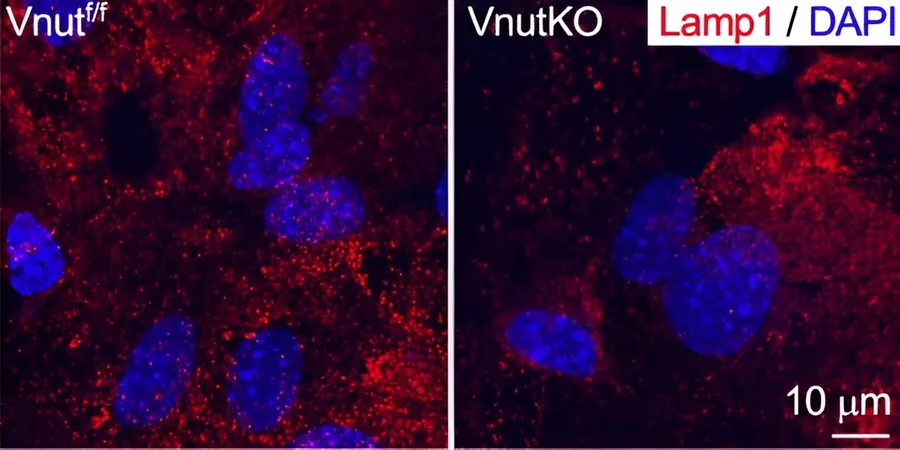
Shocking Discovery: Key Brain Protein Linked to Motivational Decline in Mice!
2024-10-11
Author: Yu
Shocking Discovery: Key Brain Protein Linked to Motivational Decline in Mice!
Recent groundbreaking research from the University of Kentucky has unveiled a crucial brain protein that may significantly influence motivation for rewards in mice. The findings promise to provide insights into the underlying mechanisms of various neurological and psychiatric disorders—could this be the key to new treatments?
Published in the esteemed journal Molecular Psychiatry, the study titled "Deletion of murine astrocytic vesicular nucleotide transporter increases anxiety and depressive-like behavior and attenuates motivation for reward" sheds light on the important role of astrocytes—cells that play a vital support role in the central nervous system. According to Weikang Cai, Ph.D., the principal investigator of the study, understanding these interactions could be pivotal in addressing mental health challenges.
At the forefront of the investigation was a protein named vesicular nucleotide transporter (Vnut), which facilitates the release of adenosine triphosphate (ATP), a crucial energy source for brain cells. Researchers aimed to decipher the functional role of ATP released via Vnut and its implications for brain activities.
In a startling twist, after removing Vnut from the astrocytes of mice, the researchers analyzed behavioral shifts in the subjects. Although structural changes in the brain and cognitive functions like memory remained intact, the researchers noticed a formidable increase in anxiety and depressive-like behaviors among the mice, particularly in females. This unexpected result highlights how a small alteration at the molecular level can derail animal behavior drastically.
The scientists employed rigorous testing methods, such as open field tests, which revealed that female mice lacking Vnut exhibited a tendency to cling to the walls of the enclosure—an obvious sign of anxiety. On the surface, this could be a simple behavior modification, but deeper analysis unveiled significant implications for understanding human depression.
In a striking behavior assessment, the team conditioned the mice to retrieve sucrose-laced food pellets by nudging a device with their noses. Normal female mice continued to persist even when the task became more challenging. However, the Vnut-deficient females displayed an alarming lack of motivation, quitting earlier—a behavior resembling symptoms of major depression in humans.
Perhaps the most alarming conclusion drawn from the study is the significant drop in dopamine levels in the absence of Vnut. Known colloquially as the "happy" neurotransmitter, dopamine is pivotal for motivation across species, including humans.
This fascinating research implies that the Vnut protein is not just a molecular bystander but plays an integral role in regulating vital dopamine signals related to mood and motivational behavior. The implications extend far beyond mice, igniting hope for unlocking new paths to treat anxiety, depression, and other related disorders in humans.
Could this be a turning point in the battle against mental health issues? The findings certainly indicate that further exploration into Vnut and its interactions may herald a new era of treatments for those affected by motivation-related conditions.
 Brasil (PT)
Brasil (PT)
 Canada (EN)
Canada (EN)
 Chile (ES)
Chile (ES)
 España (ES)
España (ES)
 France (FR)
France (FR)
 Hong Kong (EN)
Hong Kong (EN)
 Italia (IT)
Italia (IT)
 日本 (JA)
日本 (JA)
 Magyarország (HU)
Magyarország (HU)
 Norge (NO)
Norge (NO)
 Polska (PL)
Polska (PL)
 Schweiz (DE)
Schweiz (DE)
 Singapore (EN)
Singapore (EN)
 Sverige (SV)
Sverige (SV)
 Suomi (FI)
Suomi (FI)
 Türkiye (TR)
Türkiye (TR)